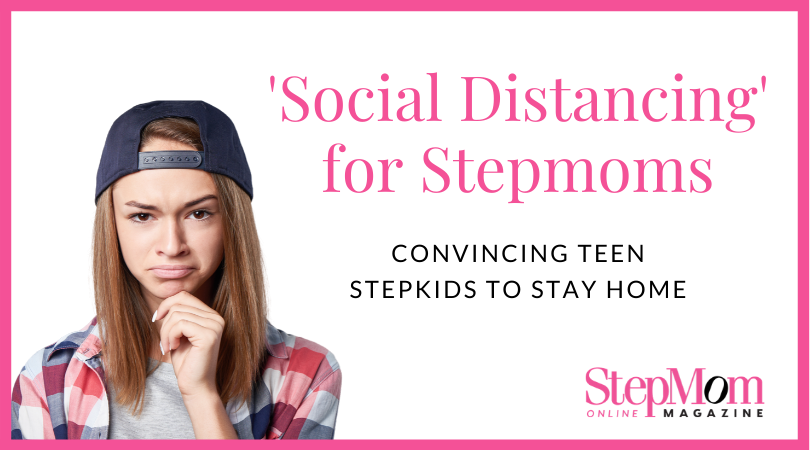
By Susan Haworth, MEd, MS
Now that local schools are closed, my friends and neighbors have been anguishing about how to deal with adolescents and their need for socializing (their life blood) when we’re all supposed to practice “social distancing.”
The Teen Brain
Teens are known for their feelings of invincibility and their narcissism. Much of this can be attributed to their brains. Adolescents make decisions and behave differently from adults with good reason. Their brains are still maturing, specifically the frontal cortex: the area responsible for problem solving and judgment.
Teens tend to be impulsive. We know that. They engage in dangerous or high-risk behaviors. They take many of their cues from their peers, who also make bad decisions. Teens have a strong need for socialization: a valid need. Peer relationships help them practice important social skills they’ll take into adulthood.
The need to socialize coupled with their sense of invincibility and narcissism creates a perfect storm. So, while some teens are more reasonable than others, we can’t expect judicious behavior during a crisis or pandemic. Yes, their brains are still maturing. But that doesn’t mean all is lost.
‘Position’ Power
When I was a school counselor, I had “position” power. I was given authority to guide students by virtue of my title. Parents would call and beg me to direct students to do homework more carefully, attend classes more regularly or apply to more colleges.
I’d often comply by calling students to my office and saying: “You must do (this or that).” Oddly enough, this strategy was mostly effective! Having even less influence than biological mothers, though, stepmothers have been given little authority and have virtually no position power.
We can talk ourselves blue in the face but our control is limited. In the ideal world, our partners would help with exercising control. Realistically, we can’t always rely on biological parents to enforce restrictions. The reasons are complicated but guilt often leads to overindulged children.
The trick, then, is to find allies in surrogate authority figures—calling in reinforcements! Our task is to identify adults who, in the eyes of our stepchildren, possess “personal” power.
‘Personal’ Power
Personal power is the ability to influence others. It is earned rather than given. Stepmoms may cultivate this power over time but no guarantees exist as to when, if ever, this will happen as it affects their stepchildren. When I had position power, I was more committed to ensuring students graduated on time and were properly launched than to having them enjoy my company.
My primary objective was not friendship. As an active stepmother, however, I was very concerned about my stepkids liking me. And, of course, I wanted to please my husband. With no position power and little personal power, I was working against my better instincts to set and enforce boundaries.
Recruit Trusted Allies
As teens rightfully differentiate from their parents, they exert their autonomy. Yet, adults who have personal power can still hold amazing influence over our (step-)kids. Neighbors, their friends’ parents, family friends and relatives are great resources for talking sense to them.
In this developmental stage, advice from parents is often ignored; advice from stepmoms low on the influence totem pole means little. Counsel from a trusted adult, however, can be persuasive and affect teen behavior. Their assistance may make a difference and reduce your stress level.
Think Like a Teen
Although there’s a shortage of hand sanitizer and disinfectant wipes these days, this isn’t true for online articles. Sharing reliable info with your teens may help if the pieces are written for a teen brain and delivered by someone (or a team of someones) with personal power. I discovered that “Teen Vogue” has published several online articles about the need to comply with social distancing. And that’s just one example!
Whether Inside or Out
For those of us “sheltering in place,” the great out-of-doors has become an escape from the confinement of our four walls. Teens can likely be encouraged to keep socializing with their peers—if they limit their exposures to 1-on-1 activities outdoors.
Technology is also our friend. Web-based video chats and interactive games can satisfy teens’ and parents’ need for social connection from within the home. So, say what you will about the downsides of social networking. It may save our sanity during this crisis!
Stepmothering has never been easy. Along with our anxiety levels, the stakes are now higher. To protect ourselves, our families and the vulnerable folks in our communities, we have to get creative. As our lives and movements become increasingly restricted due to COVID-19, I’ve been looking for silver linings.
Perhaps one outcome of this pandemic is that stepmoms will step out of the shadows and let society know that we need help, too.
SUSAN HAWORTH, MEd, MS, is a veteran stepmom who’s provided counseling, coaching and training services for more than four decades. Located in the San Francisco Bay Area, she’s the founder of Cambios Coaching & Consulting and provides ongoing support for stepmothers and stepfamilies via Skype and in person. Susan invites you to subscribe to her blog, learn more and request an initial, no-cost consultation at CambiosCoaching.com.
♥
If you liked this article, you’ll LOVE the monthly magazine.

